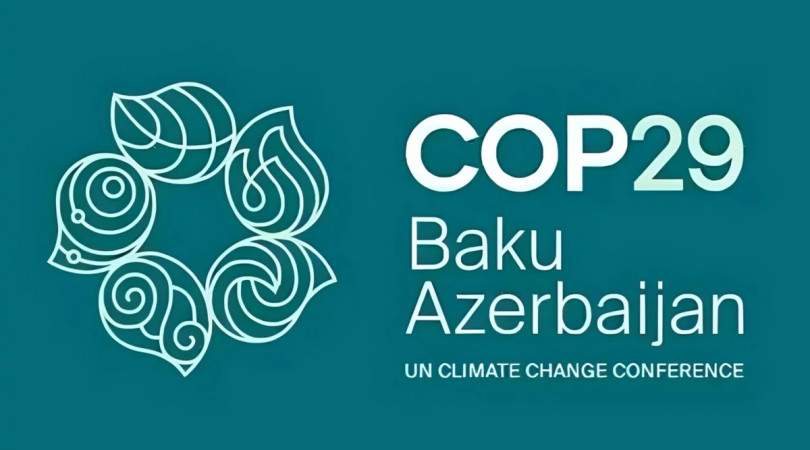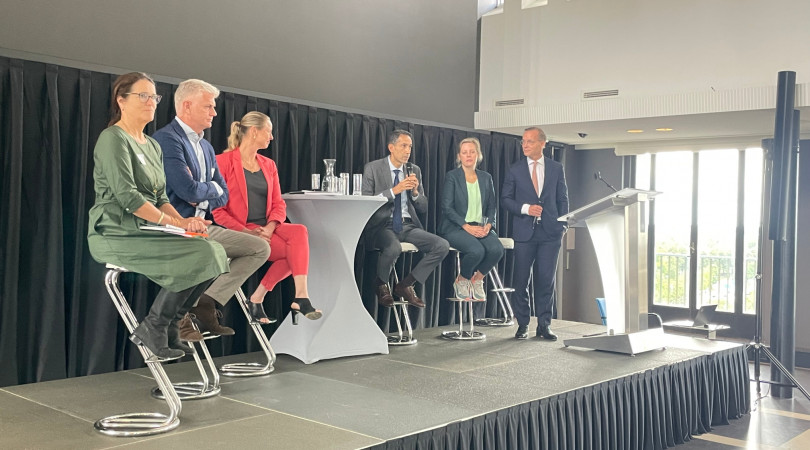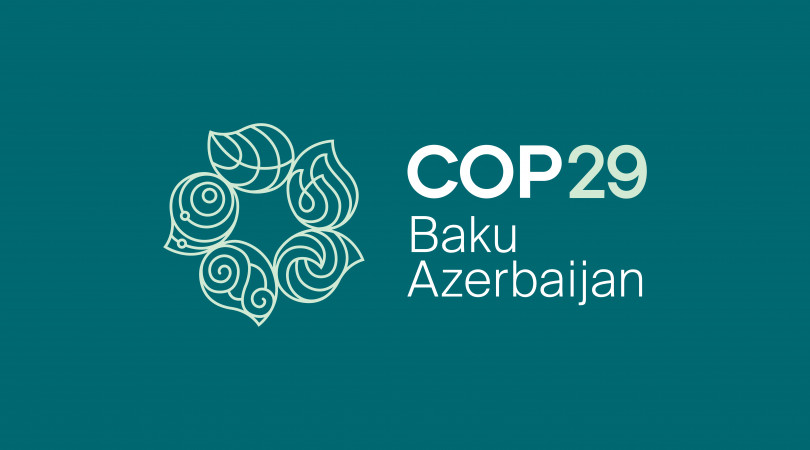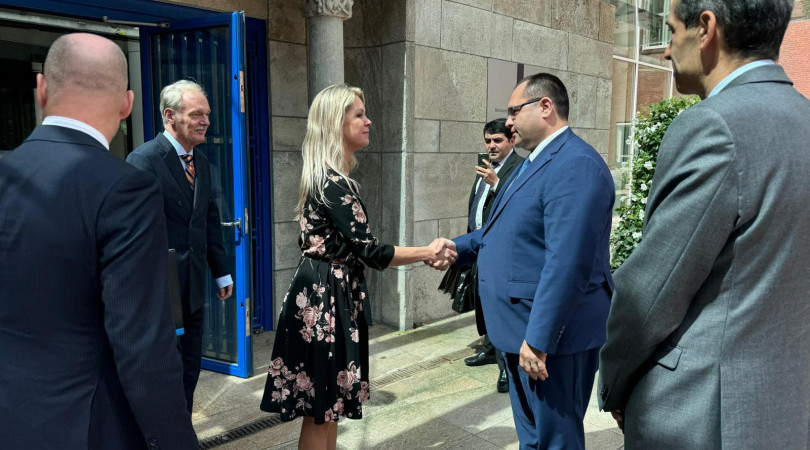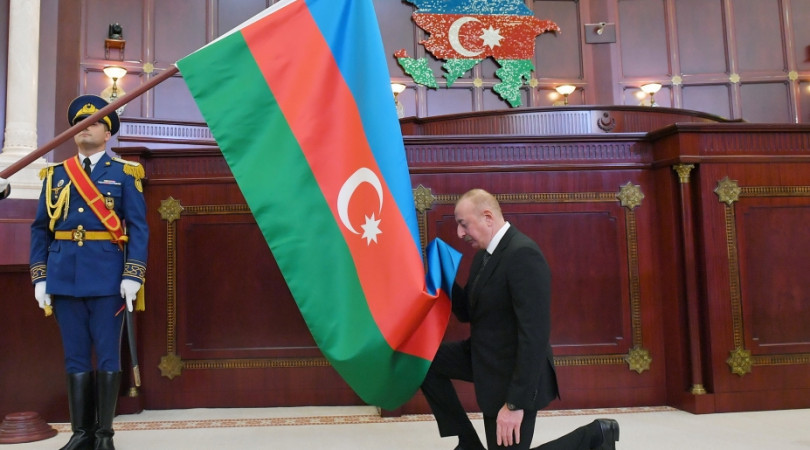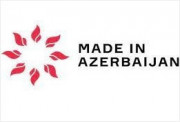Speech of Foreign Minister Elmar Mammadyarov at the meeting of Ministers of Foreign Affairs of V4 and Eastern Partnership
Speech of Elmar Mammadyarov, Minister of Foreign Affairs of the Republic of Azerbaijan at the meeting of Ministers of Foreign Affairs of V4 and Eastern Partnership
4 May 2016, Prague, Czech Republic
Dear Minister Zaorálek,
Distinguished Colleagues,
Ladies and Gentlemen,
At the outset, I would like to express our gratitude to the Czech Presidency in the Visegrad Group for hosting the next Visegrad and Eastern Partnership Ministerial Meeting.
We attach great importance to our traditional annual meetings in this format.
The success of cooperation with V4 Group stems from an outstanding track record of our bilateral relations with those countries. We continue to develop a regular high-level political dialogue on issues of common interest. I am proud to recall that Azerbaijan has established strategic partnership with Hungary and recently with the Czech Republic. The official visits of the President of the Czech Republic in September 2015 and the Prime Minister of Hungary to Azerbaijan in March 2016 gave further impetus to enhancing our bilateral agenda.
The growing number of strategic partners among the EU member states inspires us to advance our dialogue with the EU on the same premises. Azerbaijan has introduced a draft EU-Azerbaijan Strategic Partnership Agreement in Riga Eastern Partnership Summit. We are confident that this agreement will upgrade our bilateral relationship to qualitatively new level of strategic partnership and provide a better platform for the future of EU-Azerbaijan cooperation.
We have recently finalized joint consultations on this agreement and now look forward to embarking on negotiations soon. V4 countries are our important partners also in the EU context and we are convinced that our Visegrad partners will promote the adoption of negotiating mandate by the EU Foreign Affairs Council.
New geopolitical developments and challenges in the EU neighborhood will also shape EU’s future relations with Azerbaijan. We hope that the revised ENP will fit into differentiated aspirations of partner countries in their relations with the EU. Azerbaijan is ready to hold bilateral consultations with the EU with a view of exploring its engagement in potential areas of cooperation and joint thematic frameworks foreseen by revised ENP.
Azerbaijan has been the staunch advocate of pragmatism in its relations with the EU. This approach is mirrored in most recent steps taken by Azerbaijan, notably the resumption of existing political dialogue mechanism aimed at re-energizing our bilateral cooperation.
Dear Colleagues,
Nowadays, there are growing doubts that the Eastern Partnership is exhausted and has consumed its entire potential. And as we weigh the progress of our bilateral relations with the EU, the ability of the Eastern Partnership to deliver in multilateral track assumes ever greater importance in determining the overall efficiency of the programme. In this regard, huge trans-regional projects initiated and realized by Azerbaijan pledge promising effect on revitalization of Eastern Partnership multilateral track.
Southern Gas Corridor is a unique project in this regard involving diverse stakeholders from Eastern Partnership region as well as EU member states and candidate countries. The 2nd Ministerial Meeting of Advisory Council recently held in Baku and attended by Federica Mogherini and Maroš Šefčovič delivered a message of unity and solidarity on unimpeded implementation of this project. The groundbreaking ceremony of TAP which will be held in 17 May in Thessaloniki, Greece will mark another milestone in this regard. Obviously, Azerbaijan is and will remain a committed partner to meet joint strategic interests in the field of energy security.
Azerbaijan’s contribution to the multilateral cooperation is not confined to trans-regional oil and gas infrastructure projects. Baku-Tbilisi-Kars railway project which is expected to be operational by the end of this year is widely acknowledged as an inherent component of revived ancient Silk Road. This railroad will join the ranks of the region’s most critical infrastructures once China’s Silk Road Economic Belt concept comes to the full reality. This already provides a greater room for enhancing transport cooperation with the EU. Azerbaijan is also working on resumption of negotiations on Common Aviation Agreement with the EU.
Ladies and Gentlemen,
Growing threats as radicalization, extremism and terrorism challenge stability and security of Europe and its partners. These threats do not only target the lives of people but also core universal values that ensure peaceful coexistence. Multiculturalism and diversity should be promoted widely in order to overcome modern common challenges. Azerbaijan with its vibrant multicultural society is ready to share its experience in this regard. Meanwhile, we regard EU Strategy of Culture in its external action instrumental in identifying the modalities of our practical engagement in this field.
The 7th Global Forum of the United Nations Alliance of Civilizations (UNAOC) held in Baku on April 25-27 2016, adopted the Baku Declaration which would serve as guidelines for states and international organizations in promotion of intercultural dialogue and multiculturalism as a way to counter violence and extremism and sustain peace, security and prosperity for all and everybody. The Forum’s themes and sub-themes reflected the 2030 Agenda for Sustainable Development, which incorporates the promotion of inclusive societies as pivotal component for sustainable development, and the creation of justice, peace, and security. The Forum was attended by more than 4000 participants, including heads of states and governments, officials, academicians, experts and representatives of civil society and media.
Debating on security challenges in the EU neighborhood, I guess it would be very remiss of us not to mention ongoing military aggression of Armenia against Azerbaijan.
The recent provocative acts by Armenian armed forces in this April along the frontline have caused unprecedented escalation in the history of conflict. We have always made clear that the persistent presence of Armenian armed forces in the occupied Nagorno-Karabakh and 7 adjacent regions is a source of instability and frequent outbreaks of deadly military confrontations along the line of contact. Armenia has continuously disregarded international calls on moving beyond “status-quo” in the resolution of the conflict.
Azerbaijan is interested in a negotiated settlement of the conflict. Its roadmap to peace and stability is clear and based on international law. Azerbaijan will not compromise its territorial integrity as it is done by V4 and other five Eastern Partnership countries. Armenian armed forces must unconditionally withdraw from all occupied territories of Azerbaijan and ensure safe return of internally displaced persons with dignity to their places of origin, as it’s required by relevant UN Security Council resolutions.
Thank you!

